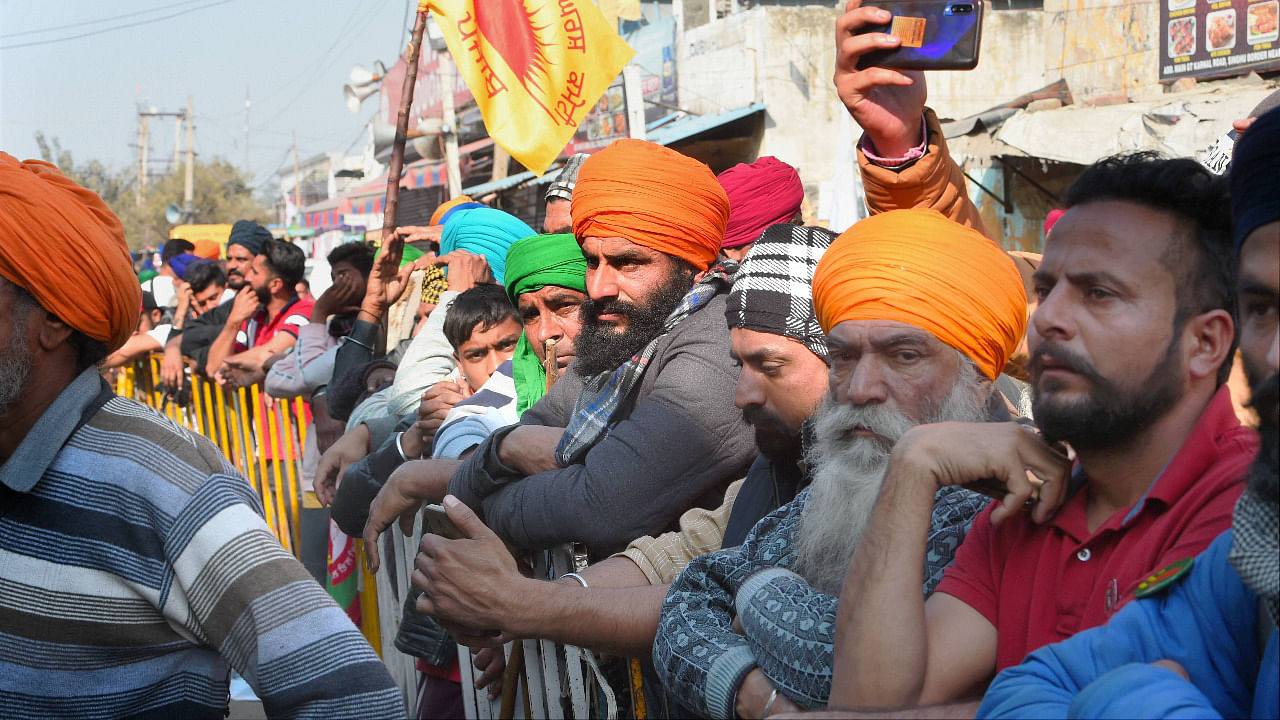
Agriculture experts on Wednesday said the position of protesting farmer unions has weakened and they may face a credibility crisis after the violence during their tractor parade on Republic Day, saying time is ripe for the government to strike the best deal and end the two-month-long agitation.
The tractor parade meant to highlight the demands of the farmer unions dissolved into anarchy on the streets of Delhi on Tuesday, as tens of thousands of protesters broke through barriers, fought with police, overturned vehicles and hoisted a religious flag from the ramparts of the iconic Red Fort.
Also Read | Tractor parade aftermath: Prominent farmer leaders named in Delhi Police FIR; 2 unions withdraw from stir
The Centre has so far held 11 rounds of discussion with the protesting farmer unions. In its tenth round, the government had offered the unions a proposal to suspend the new agriculture laws for 1-1.5 years, which the latter rejected outright.
However, at the 11th round of discussion held just before Republic Day, the government had asked the unions to reconsider the proposal and convey their final decision.
"The violence on a national day has sent out a bad name to the country worldwide. Today, farmers are facing credibility crisis. Therefore, it is the best time to strike a deal," Indian Council of Food and Agriculture Chairman M J Khan told PTI.
So far, about 40 protesting farmers’ unions were negotiating with the government on a point of strength and the government was giving in more to their demands, he said.
"But today, the government may agree less and find a solution. That solution is to concede to their demand on minimum support price (MSP) and not repeal of the laws," he noted.
Khan further said implementation of MSP for 23-odd crops will have zero impact on the exchequer. There will be little implication on the trade to the tune of Rs 80,000-Rs 90,000 crore, which can be recovered from consumers.
After Tuesday's violence during the tractor parade, farmers will negotiate from the point of weakness and therefore, this is a better time for the government to take the talks further and end the current impasse, he added.
Khan also said the government cannot afford to send the protesting farmers back with empty hands after 60 days of protest. It has to give more than what it has already agreed to.
Agri-expert Vijay Sardana claimed the protesting farmers' unions have "vested interest with hidden agenda to protest against the ruling party".
“After Tuesday's violence in Delhi, the government should rethink how to engage with the protesting farmers' bodies, which have no proper base. The government should not go by their face value.
"The way forward is very clear. The government should give a clear message that there won't be further talks and they can come before the Supreme Court-appointed panel and submit their suggestions," he said, adding that the new agri-laws are not only for wheat and rice-growing states.
Agri-economist and former member of erstwhile government's think-tank Planning Commission, Abhijit Sen said so far the protesting farmer unions were “united”. But after the Tuesday's incident, he said "the extent of sympathy that the farmers unions had, may actually go down quite exponentially".
Also Read | Farmer Unions allege anti-social elements tried to ‘torpedo' peaceful protests, slams govt, actor Deep Sidhu
"Both sides are playing to the gallery. They are really not doing serious talk," he said.
Asked if there are problems in the new farm laws, Sen said, "If you are in Punjab and Haryana, there are serious problems with these laws. If you are in other parts of the country and not growing rice and wheat, there are not that serious problems with the laws."
There are still serious problems with the laws as far as what could mean the Centre and states' relationship. Basically, it means that much of the agriculture would then become a central subject, he said.
"If that happens, I believe agriculture will be worse of in India," Sen said, adding that agriculture in India is too diversified to be a central subject and needs very careful and varied inputs in different locations.
On options left with the government to end the crisis, the expert said, "They can make the current central laws into model laws, and say that these laws will not come into application unless the states clear them in their legislature."
He also alleged that the Supreme Court was "very careless" in handling the issue, saying the apex court should have dealt with the matter on the constitutionality of the laws and not acted as a negotiator.